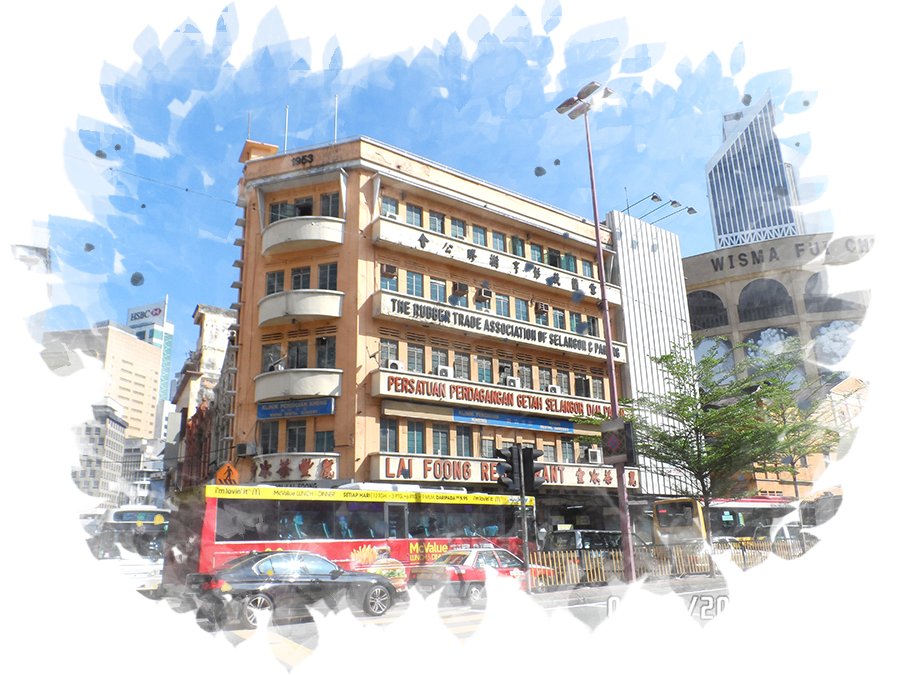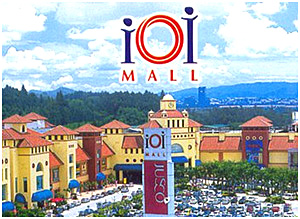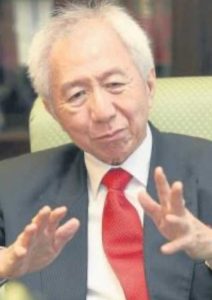The Engchoon Kuala Lumpur History Gallery






Engchoon Community After
Malaya's Independencen
Influence of Ancestral Commercial Culture
on the Engchoon People
in Kuala Lumpur
Membership data from the Engchoon Association in Kuala Lumpur from 1950 to 1975 indicates that most people in Kuala Lumpur at that time were engaged in small businesses. While this is partly related to Kuala Lumpur being a city with active commercial activities, a closer analysis of the backgrounds of these Engchoon migrants reveals that the geographical and livelihood environment of their ancestral home profoundly influenced their means of livelihood after migration.
Based on the distribution of these Engchoon people in the towns of their ancestral home, it can be inferred that before migrating south, they were likely engaged in similar industries. Most of these business-oriented Engchoon people came from Wuli Street, Shigu, and Taocheng Town. These areas are close to the most prosperous regions of Engchoon, and Taoxi, the external lifeline of Engchoon, flows through them, fostering a local commercial culture.
The author found that the proportion of Engchoon people from more remote areas such as Jiefu Township, Huyang Town, or the mountainous Yangshang Village in Taocheng Town developing in Kuala Lumpur is relatively low. These northernmost towns of Engchoon, where farming was the main means of livelihood, mainly concentrated in the rural areas of Muar to Pontian on the west coast of Johor when they migrated to Malaya, engaging in rubber and plantation industries. This confirms that the occupations of Engchoon people after migration are closely related to their means of livelihood before migration in their ancestral home. This demonstrates that the settlement locations of Engchoon people in Malaya and the local industry types are related. From this, it can be inferred that the construction of clan networks and economic factors are influenced by the livelihood culture of their ancestral home.
Contributions and Important Figures
of Engchoon People
in the Rubber Industry
The entire rubber industry chain in Selangor is almost entirely controlled by the Engchoon people. Engchoon rubber merchants primarily organized the Selangor and Pahang Rubber Traders Association in 1946, which was renamed the Kuala Lumpur, Selangor, and Pahang Rubber Traders Association in 1953, contributing significantly to the development of the domestic rubber industry. In 1960, out of the 183 members, 56 were from Kuala Lumpur. The vast majority of these owners were from Engchoon, highlighting the leadership role of Engchoon people in the rubber industry. From the 1950s to the 1980s, former presidents of the Kuala Lumpur Engchoon Association, Zheng Di and Li Yannian, successively led the Selangor and Pahang Rubber Traders Association and served as presidents of the Malaysian Rubber Association.
Yan Deyao not only engaged in rubber planting and trading but also held numerous prominent positions such as Chairman of the Malayan Rubber Producers Council, Chairman of the Malayan Rubber Replanting Committee, Vice Chairman of the Rubber Industry Society, President of the Malayan Rubber Estate Owners Association, Chairman of the Malaysian Rubber Exchange, and Chairman of the Malaysian Rubber Export Registration Board. In 1956, he was appointed Secretary-General of the Malaya-China and Japan Trade Mission. From 1963 to 1964, he served as Secretary-General of the Malaysia-Eastern Europe Trade Mission, making significant contributions to the development of the rubber industry in our country.
Former Republic of China Consul-General Ma Tianying in Malaya, Deputy Prime Minister and Minister of Defense Tun Razak, Yap De Yao, and Cheng Teck attended a celebration of the Selangor and Pahang Rubber Merchants Association
Source: Provided by Kuala Lumpur, Selangor, and Pahang Rubber Merchants Association

The exterior of the Kuala Lumpur, Selangor, and Pahang Rubber Merchants Association building
Source: Provided by TEE BENG LEE

New Fields Pioneered
After Independence:
Palm Oil Industry, Real Estate,
and Service Industry, and Key Figures
Although palm oil cultivation in Malaysia began in 1911, around the same time as large-scale rubber planting, the planted area by 1967 was only 399,621 acres, a stark contrast to the 4,335,000 acres of rubber at that time. However, starting in the 1980s, due to the surge in demand and rising prices for palm oil, many rubber plantations were converted to oil palm plantations during replanting, leading to a phenomenon where the rubber industry declined as the palm oil industry grew. Former Kuala Lumpur Engchoon Association presidents Huang Maotong, Zheng Jingxin, and Li Shenjing have been highly successful in the palm oil industry. Notably, the IOI Group led by Li Shenjing is the largest private enterprise in Malaysia’s palm oil sector, with plantations spanning Southeast Asia and business operations worldwide.
Li Shenjing, who started from scratch, was initially employed by the family of Li Yannian to manage oil palm plantations in Perak, where he learned the knowledge of oil palm cultivation and management. In 1975, he founded Southern Group Sdn Bhd and ventured into real estate development, achieving success in a short time. Later, he and his friends acquired a listed company, Industrial Oxygen Incorporated (IOI), but he shifted his business focus to the familiar oil palm industry, gradually acquiring large areas of oil palm plantations. With a keen eye for opportunities, he foresaw the potential of palm oil and integrated upstream and downstream operations in the industry. IOI Group, through continuous acquisitions of other groups’ oil palm plantations, has expanded its scale over the years, and the palm oil industry has brought substantial profits to IOI Group. Today, Li Shenjing is not only one of Malaysia’s most successful entrepreneurs but also one of the world’s leading Chinese business figures. For his significant contributions to Malaysia’s palm oil industry, Li Shenjing was awarded an honorary Doctor of Agriculture degree by Putra University in 2002.
IOI MALL, developed by Lee Shin Cheng’s IOI Group

Bina Puri is a major domestic construction and development group in Malaysia

Due to their significant investment in the rubber industry, the Engchoon people in Kuala Lumpur came to control large tracts of land. This provided them with an opportunity to develop the real estate sector as the population grew and housing demand increased. Notable successful real estate developers from the Engchoon community include Zheng Di, Lin Weide, and Lin Weihe brothers, Li Yannian, Li Shenjing, Zheng Fucheng, Chen Ziyuan, Chen Zicheng, Chen Zhennan, and Huang Zhongsheng. Among them, Li Yannian’s development of the Kepong Satellite City, Li Shenjing’s development of Puchong New Town, and Zheng Di’s town development project in the south-central commercial district of Kuala Lumpur are all successful examples. The Berjaya Group by Chen Ziyuan, the Tropicana Corporation Bhd by Chen Zicheng’s Tropicana Group, Tan & Tan by Chen Zhennan, and the Gamuda Group by Zheng Fucheng are among the more competitive construction and engineering groups in the country.
Zheng Fucheng started as a small contractor, gradually expanding his business with a pragmatic management approach and extensive networks. In 1976, he founded “Kumpulan Perangsang Selangor Berhad.” In 1983, he facilitated the merger of Kumpulan Perangsang Selangor Berhad with Gamuda Berhad, focusing on the construction industry while also venturing into glass and chemical manufacturing. Besides participating in domestic public infrastructure projects, the company actively explored overseas markets, undertaking major infrastructure projects in several Asian countries. In January 1995, Gamuda Holdings Berhad was listed in Kuala Lumpur. Currently, the group has more than ten subsidiaries under its umbrella.
Additionally, Engchoon people have achieved success in the financial and gaming industries. Yan Wenju was one of the founders of Malayan Banking. Li Yannian served as the vice chairman of Lee Wah Bank. In the 1970s, Zheng Di was the vice chairman of United Overseas Bank in Singapore and later served as a director of Kuala Lumpur United Bank, United Finance, and United Insurance. Xie Yao Yiwen was the managing director of Hong Leong Bank and the first woman in Malaysia to become a bank CEO. Chen Ziyuan, besides controlling the domestic Toto gaming operations, also owns several casinos abroad and became a major shareholder of the Cardiff City football team in the English Premier League a few years ago.
The Engchoon people in Kuala Lumpur have diversified their business ventures significantly over time. Starting from grocery stores, tin ore trading, rubber purchasing, palm oil planting, real estate development, and moving into finance, gaming, fast food, and textiles, they have expanded into various sectors. Their business practices have evolved from the traditional cautious and steady approach to being bold and innovative, participating in emerging and popular industries both domestically and internationally.
The first generation of immigrants and the locally born second generation developed different business styles due to their distinct experiences and changing local environments. Huang Zhongji, Zheng Di, and Li Yannian exemplify the first generation of immigrants who started from scratch, while Chen Ziyuan, Chen Zicheng, and Li Shenjing represent the locally born second generation of entrepreneurs who have succeeded in various fields. The two generations differ significantly in many aspects, operating in entirely different business environments, highlighting a divide between traditional and modern approaches.
Judge Liu Guomin

Performance of
the New Generation
in Professional Fields
After Settling Down
In addition to their commercial ventures, it is noteworthy that the industries in which the Engchoon people of Kuala Lumpur are engaged have undergone significant changes. In the 1970s, besides continuing traditional skills such as Taoist practices and astrology inherited from Engchoon, Engchoon people in Kuala Lumpur began to appear in civil service roles and professional fields such as medicine, law, and accounting. This shift indicates that their livelihoods have evolved to meet the needs of the local environment.
After independence, the Engchoon people in Kuala Lumpur began to produce professionals such as lawyers, doctors, accountants, land surveyors, and engineers. The composition of the Engchoon community in Kuala Lumpur started to change after 1970. Increasingly, members of the Engchoon associations in Kuala Lumpur were second or third-generation descendants from other states. After obtaining professional qualifications from universities, they moved to Kuala Lumpur for employment and resettlement.
Since independence, the board of directors of the Kuala Lumpur Engchoon associations has included several chartered accountants, with four of them currently originating from Johor. Additionally, many doctors, lawyers, and engineers who contribute to Kuala Lumpur’s society are not originally from the city but relocated here after completing their education.
The Engchoon people were conscious about providing their next generations with higher education opportunities upon migrating to Malaya, aiming to improve their future employment prospects and move away from manual labor and economic hardship. Consequently, many second and third generations from agricultural backgrounds have achieved remarkable success in their careers.
Judge Liu Guomin, an advisor to the Kuala Lumpur Engchoon association, grew up in Bukit Gambir, Muar, Johor. He received a government scholarship to study law at Lincoln’s Inn, London, and later obtained a Master of Laws from the University of London under a government scholarship. He returned to Malaysia and served as a magistrate, subsequently promoted to Judicial Commissioner before retiring as a Court of Appeal judge.
This emphasis on education among Engchoon immigrants to Malaysia and their adaptation to local society has cultivated numerous outstanding talents. The Engchoon are adept at business and place a high value on education and cultural activities while showing less interest in political pursuits. Consequently, despite the establishment of the Kuala Lumpur Engchoon association ninety years ago, only a few members have become state or national legislators.

